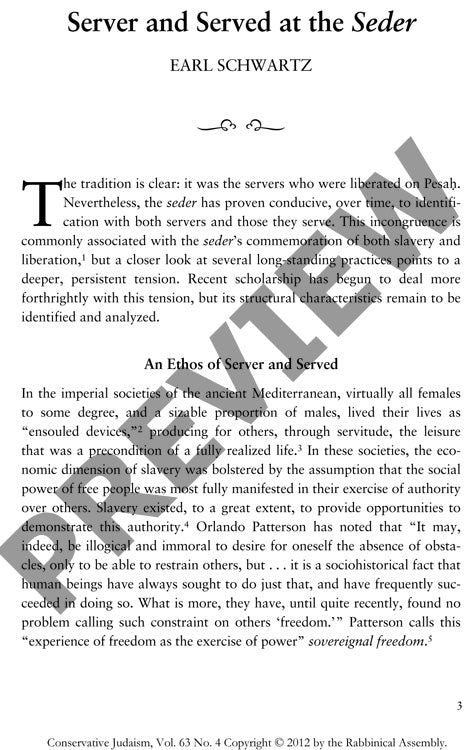Server and Served at the Seder
Couldn't load pickup availability
A profound paradox lies at the heart of the Jewish Passover seder: practices meant to celebrate freedom from bondage often reinforce social hierarchies through service relationships. By examining three key seder practices—reclining (hesseiv/hasibbah), the use of servers, and afikoman traditions—this research uncovers how rabbinic tradition incorporated Greco-Roman symposium customs that valued "sovereignal freedom," defined as authority over others. Through historical-critical analysis of Jewish texts spanning Mishnaic sources to contemporary Haggadot, the investigation reveals how these practices evolved within imperial Mediterranean societies and continue to shape modern celebrations. Despite commemorating liberation from Egyptian slavery, rabbinic sources consistently justify displays of social advantage as expressions of freedom, explicitly excluding servants, women, and others of lower status from practices like reclining. This structural contradiction persists in contemporary seders, where the experience of liberation remains stratified by socioeconomic roles. Authentic engagement with the Exodus narrative requires recognition of how current seder practices may inadvertently perpetuate the very power dynamics the festival ostensibly challenges, suggesting a need to revisit the biblical emphasis on service rather than being served.

More Information
-
Physical Description
-
Publication Information
Published 2012
ISBN
-
Publication Credits
Earl Schwartz

